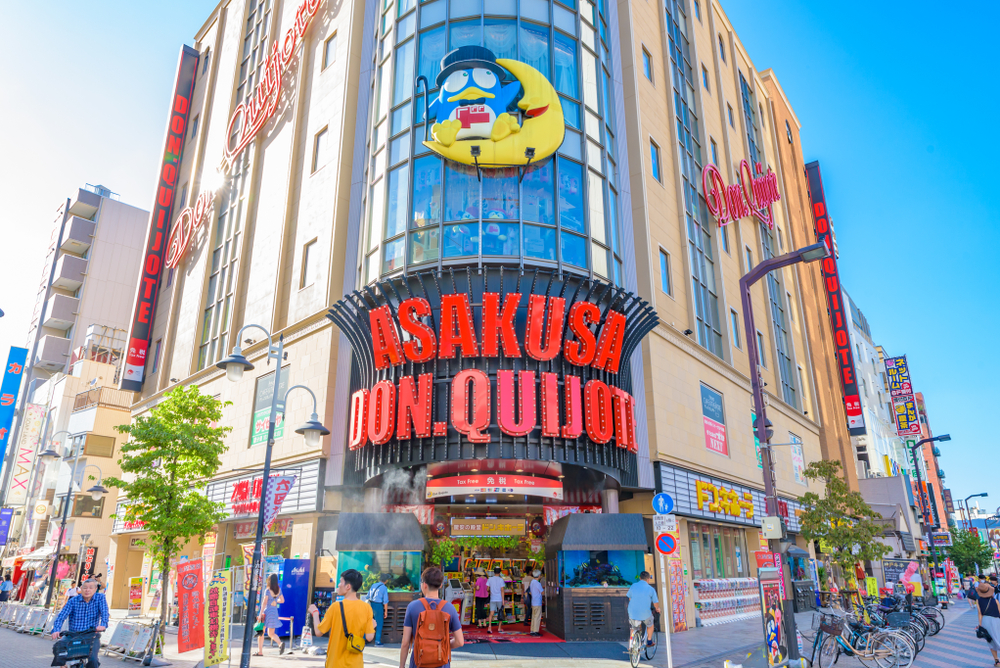Christina, a French Pvtiste in Osaka, shares her intriguing journey working at Don Quijote, Japan's bustling retail giant. Starting her adventure with a fascination for the Japanese language, she landed a job at Donki's top-performing store in Dotonbori, thanks to its welcoming policy towards foreigners. Her role primarily involves managing the tax-free process, where she interacts with an international clientele and occasionally handles unique situations like interpreting during theft incidents. Despite the job's physical demands and modest pay, Christina appreciates the cultural insights and the promise of a work visa and full-time position post-WHV. Curious about the quirky work culture at Donki, including a trash festival and typhoon hustles? Dive into Christina's full story to explore the vibrant, sometimes surreal world of working retail in Japan.
Christina from France, currently on a Working Holiday Visa (WHV) in Osaka for the past 10 months, shares her experience working at Don Quijote. If you’ve been to Japan, chances are you already know about this popular chain store selling miscellaneous goods, with 400+ locations across Japan. What’s it like working there? Let’s ask Christina!
pvtistes
Why did you decide to go on a working holiday in Japan?
Christina
It all started thanks to my uncle who had traveled to Japan and shared stories that fascinated me. I began learning Japanese, first through a local association, then by myself, with the dream of visiting someday. I’m not really an otaku or deep into pop or traditional Japanese culture; I was just focused on the language.
-
As I progressed, I realized it would be a shame to put in all that effort just to go on a short vacation. Over time, the idea of staying in Japan for a few years began to take root.
pvtistes
Why this job? Did you know Don Quijote before?
Christina
Don Quijote (or “Donki” for short) was actually my first job here. I started job hunting right after I arrived, but nothing worked out through recruiters or spontaneous applications in fields like law or real estate. Then I applied to a Donki job one month into my stay and landed it surprisingly easily.
-
I didn’t know the company at all at first, but I quickly realized how massive it is, especially since I work at their highest-grossing store in the country (Don Quijote Dotonbori, #1 in Japan for the past 5 years). When I tell people I work at Donki, they’re always surprised!
pvtistes
What was the hiring process like?
Christina
I replied to a Craigslist Osaka ad (our store also posts in Facebook groups). Since 90% of our customers are foreign, the Dotonbori branch hires a lot of foreigners, including students and WHV holders. My manager was German, but I had to submit both an English and Japanese CV.
-
The interview was mostly in Japanese. You need at least JLPT N3 level to work at Donki. Everything among the staff is in Japanese, though we speak English with customers.
-
The interview was pretty basic: why Donki, what I knew about the company, etc. It lasted about 20 minutes. I filled out some forms in Japanese and indicated my role preferences. A week later, the manager called me back, and I started the next week.
pvtistes
What’s your exact role?
Christina
Foreign staff at Donki mainly work in the tax-free department or at the register. I work in tax-free. Depending on my assigned station, I greet customers and explain the tax rules, pack purchases into sealed bags, or process tax refunds.
-
We rotate positions like an assembly line, especially during busy times. On slower days, I also help make promotional posters or order supplies. I also sometimes interpret between the police and foreign tourists during thefts, or assist in hiring interviews.
-
I’ve also been trained at the registers and taken part in promotional events, like wearing a yukata!
pvtistes
How were the first few days?
Christina
Honestly it was a bit overwhelming. Donki is a big company with strict procedures. On my first day, I signed my contract, got my uniform, and watched a 2-hour company training video in Japanese. It covered everything: dress code, customer service, emergency protocols, etc.
-
After that, I met with management. I learned how the office works and did one hour of on-the-job training. It was a lot of new vocab and processes, but everyone was kind and supportive.
pvtistes
What’s your daily life like with this job?
Christina
I’m still a part-timer but Donki has promised me a work visa and a full-time position after my WHV ends. For now, I provide my availability and they schedule me. I work 4 days a week, 9 hours a day, with a 1-hour break. I start either at 7 a.m. or 11 a.m.
-
The store is open 24/7, and I could work nights for higher pay, but I prefer not to. I’m on my feet all day. On quiet days, we chat a bit. The tax-free team is very international, with lots of Chinese and Korean coworkers, so I learn a lot.
-
By the end of the day, I’m exhausted. The noise, the crowd, the language-switching, the standing… I just want to go home and sleep.
-
On my days off, I rest. Since the pay isn’t great, I have more time than money, so I don’t travel much.
pvtistes
What are the pros and cons?
Christina
Pros: Flexible schedule, you meet lots of people, room to grow and take on responsibility, something interesting happens every day
-
Cons: Low pay, physically exhausting, poor employee facilities (break room, restrooms), stress increases with more responsibility
pvtistes
Any fun stories from work?
Christina
So many! This store attracts some wild customers, and management is always trying to create a fun atmosphere, leading to lots of WTF moments.
-
One example: the gomi matsuri or trash festival, where employees dress in costumes and collect trash around the store. On my first day, I saw my manager dressed as a frog. It really set quite a tone!
-
Another time during Typhoon Jebi (a major storm that hit Osaka), while most stores closed, ours stayed open. The wind was howling, signs were flying, and people were still lining up for their 200-yen tax refund. My manager wore a construction helmet and yelled at us to go faster. It was surreal.
pvtistes
What have you taken away from the experience?
Christina
Even though my tasks are simple, I’ve learned a lot: how Japanese companies work, office vocab, and improved my Japanese.
-
That said, because I’m in the international team, I haven’t had a truly Japanese workplace experience. None of my managers are Japanese, and I only see Japanese staff during daily morning meetings (where we recite company values in unison—not unlike a cult!).
pvtistes
What’s next for you?
Christina
I’ll stay at Donki for now since I’ve been promised a work visa and upward mobility. But long-term, it’s not my dream career. I’m still exploring options like real estate.
-
Donki is a great place to start. You learn how Japanese work culture differs from that of your home country, but it’s not somewhere I want to stay forever. The management lives to work and I don’t want that life.
-
Once I’ve gained enough experience, I’ll look for a calmer job with better conditions. Donki is kind of like working at McDonald’s: if you can survive here, you can work anywhere, and it looks impressive on a résumé, especially for a Westerner.



















0 comments
{{like.username}}
Loading...
Load more